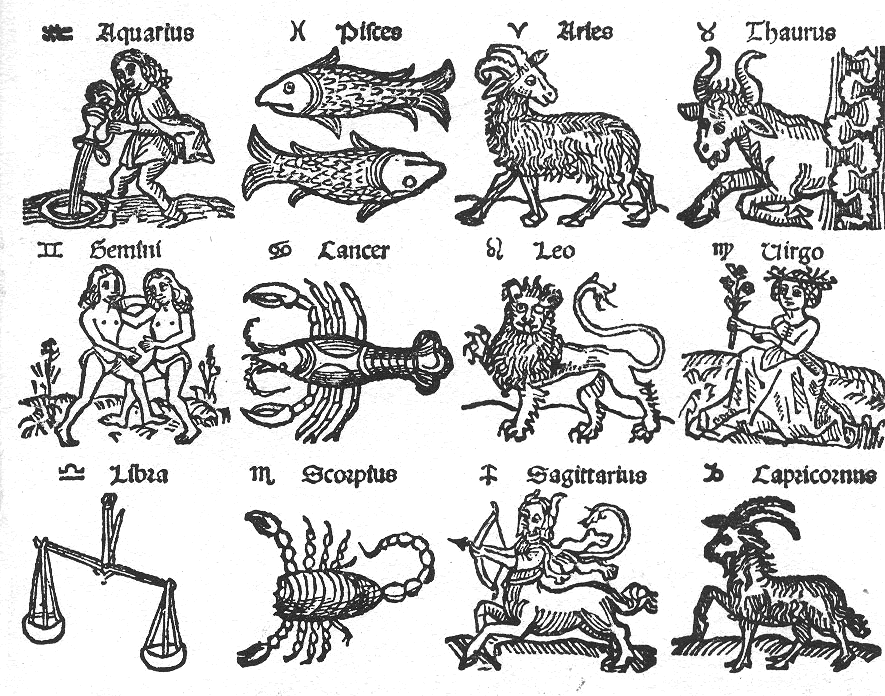Basics of Western Astrology Explained
By: Paul Curran
Introduction
This article covers the basics of Astrology and how they are inter-related. Astrology is defined as ‘the art or practice of determining the supposed influences of the planets and their motions on human affairs and human disposition’. From this practice a horoscope can be produced – a diagram (or chart) of the relative positions of planets and signs of the Zodiac at a specific time, usually the time of birth. A forecast can then be produced.
The Zodiac
Western Astrology originated way back, around 500 BC, with a concept called the Zodiac being developed. This comprised of an imaginary sphere surrounding the earth, which followed the path of the Sun through the constellations during the year. The Zodiac was split into twelve sections, each named after the specific constellation noted in that area.
Elements
Many ancient philosophies used a set of classical elements to explain the way nature behaved. Each sign was connected to one of the classical elements (fire, earth, air, or water) and was also related to a region of focus; social, personal or universal.
* Water signs are related to growth processes, identification and emotion. In tandem with the other elements, water feels that fire will make it boil, air will evaporate it, but earth will shape and channel it.
* Fire signs are related to action, passion, and energy. In tandem with the other elements, fire feels that earth will smother it, water will drown it, but air will fan and enliven it.
* Air signs are related to thought, perspective and communication. In tandem with the other elements, air feels that water will obscure it, earth will suffocate it, but fire will inspire and uplift it.
* Earth signs are related to sensation, stability, and practicality. In tandem with the other elements, earth feels that air will dry it, fire will dry it, but water will refresh and nourish it.
Modalities
Each sign is connected to one of three modalities; cardinal (sometimes referred to as movable), fixed, and mutable.
There are four quadrants following the order of the zodiacal signs, with three signs in each. Each quadrant describes a season, beginning with a cardinal sign, continuing to a fixed sign, and ending with a mutable sign.
Modalities and Related Zodiac Signs
Mutable signs are related to adaptability, resourcefulness and holism. They are Gemini, Virgo, Sagittarius and Pisces.
Fixed signs are related to determination, focus and individuality. They are Taurus, Leo, Scorpio and Aquarius.
Cardinal signs are related to creativity and initiation. They are Aries, Cancer, Libra and Capricorn.
Summary of Zodiac Sign Characteristics
Aries (cardinal, fire, personal): defensive, energetic, head down, assertive, impulsive.
Taurus (fixed, earth, personal): patient, indulgent, resourceful, thorough, devoted.
Gemini (mutable, air, personal): quick, logical, inquisitive.
Cancer (cardinal, water, personal): clinging, protective, sensitive.
Leo (fixed, fire, social): theatrical, generous, proud.
Virgo (mutable, earth, social): critically, practical, efficient.
Libra (cardinal, air, social): lazy, co-operative, fair.
Scorpio (fixed, water, social): anxious, passionate, sensitive.
Sagittarius (mutable, fire, universal): careless, free, straightforward.
Capricorn (cardinal, earth, universal): suspicious, prudent, cautious.
Aquarius (fixed, air, universal): detached, democratic, unconventional.
Pisces (mutable, water, universal): distracted, imaginative, sensitive.
Author Bio
Paul Curran is webmaster of Love Horoscope World covering Links2Love, resources about astrology online, chinese astrology and free love horoscopes.
Article Source: http://www.ArticleGeek.com – Free Website Content






